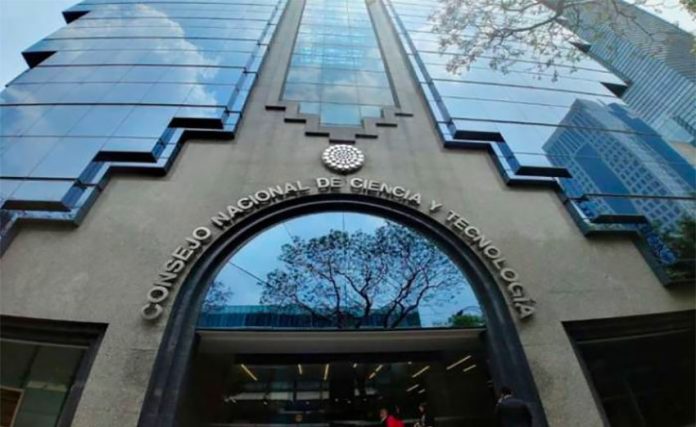The National Council of Science and Technology (Conacyt) hid a damning report on the Maya Train before a vote was held on the project last December.
At the end of September 2019, the council invited more than 30 researchers to participate in a group that was tasked with carrying out an analysis of the risks that the construction and operation of the 1,500-kilometer railroad will entail.
After a consultation and vote on the project was announced in the middle of November, Conacyt urged the researchers to move quickly to submit their report, telling them that it would be publicly disseminated before the plebiscite took place.
The researchers obliged, submitting their report to Conacyt between December 10 and 12, according to sources who spoke with the newspaper El Universal.
As a result, the federal agency had a window of three to five days to distribute the report before the December 15 vote that found more than 92% support for the Maya Train, President López Obrador’s signature infrastructure project.
However, it failed to make the report available to both government ministries and the general public.
“They [Conacyt] imposed a very short time frame on us … asking us to submit something, and we did. But that’s where it stopped,” said a researcher who spoke with El Universal on the condition of anonymity.
“They told us that it was too late and that they didn’t want to release it before the consultation in order not to influence it.”
Consequently, the report was unable to fulfill its key stated aim before the vote took place: to provide information about the rail project to the “different actors of society, government and academia who have an interest or responsibility … to guarantee … the public good.”
The contents of the report certainly had the potential to change opinion about the railroad that will link cities and towns in the states of Yucatán, Quintana Roo, Campeche, Chiapas and Tabasco, as the researchers determined that its construction and operation would have negative impacts in a broad range of areas.
Obtained by El Universal, the report (Spanish only) said that the project would affect at least 10 natural protected areas in Campeche, Chiapas and Quintana Roo, including the Palenque National Park and the Sian Ki’an Biosphere Reserve.

Construction and operation of the railroad will undermine the capacity of ecosystems to replenish the water table and capture carbon, the report added.
The researchers also found that 1,288 archaeological sites are within 10 kilometers of the proposed route and that they could suffer a “direct impact” from the operation of the train.
The heavy loads of trains traveling near pre-Hispanic settlements and the increased number of visitors they will transport to them could cause “irretrievable damage” to the sites and their cultural relics, the report said.
It appears that the government has taken that finding into account, at least partially, as the chief of the National Tourism Promotion Fund, Rogelio Jiménez Pons, announced last week that a line between Valladolid, Yucatán, and Tulum, Quintana Roo, will not go ahead due to the large number of archaeological sites around Cobá in the latter state as well as problems with the subsoil in the area
The researchers contracted by Conacyt also found that 143,00o people living in 197 indigenous communities would be adversely affected by the construction and operation of the railroad.
In addition, the report said that cooperatives and individuals who cede land to the government for the project will not necessarily benefit financially because they will be compensated with shares that will be listed on the Mexican stock exchange and “whose performance is not guaranteed.”
Jobs to be generated by the construction of the project will only last for a short time and most will be poorly remunerated, the report said, adding that the operation of the Maya Train and its intent to stimulate tourism in southeastern Mexico will lead to the “increase of illicit activities such as human trafficking and the movement and use of drugs.”
Migrants aiming to travel through Mexico to the United States’ southern border could travel illegally on freight trains that will use the same tracks as tourist trains.
The Conacyt report adds to a range of concerns already raised by experts and indigenous groups in the five states through which the US $7-billion railroad is slated to run.
The Zapatista Army of National Liberation and two indigenous organizations called the consultation process “a sham,” and the United Nations found that it failed to meet all international human rights standards.
The government likely faces a long and rocky legal road to build the railroad, which is slated to begin operations in 2023.
A group of Maya and Ch’ol people has already been granted a definitive suspension order against the project that applies to one community in the Campeche municipality of Calakmul, and it is likely that other indigenous groups will also file legal action against the Maya Train, one of a trio of large projects that the government is betting will bring greater prosperity to the underdeveloped and impoverished southeast of the country.
Source: El Universal (sp)
